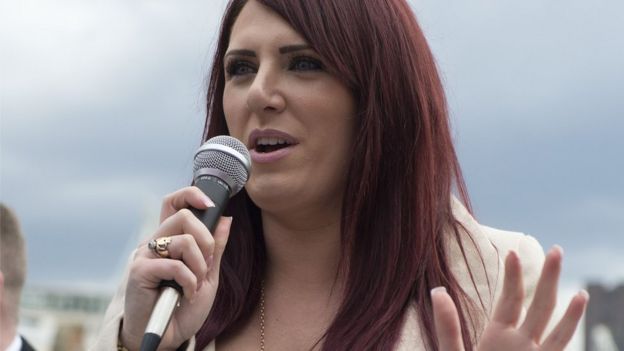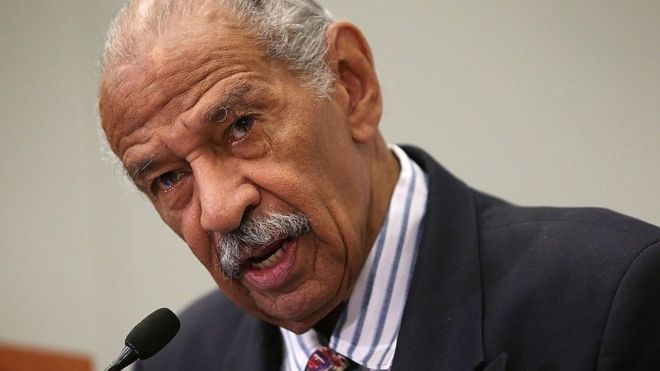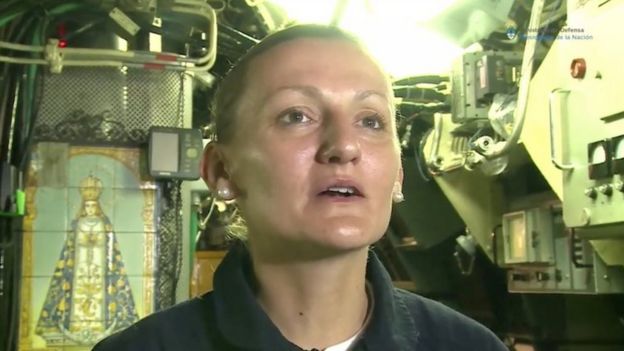
The first tweet from Jayda Fransen, the deputy leader of Britain First, claims to show a Muslim migrant attacking a man on crutches.
This was followed by two more videos of people Ms Fransen claims to be Muslim.
Responding to Mr Trump's posts, UK Prime Minister Theresa May's official spokesman said it was "wrong for the president to have done this".
White House spokeswoman Sarah Sanders said Mrs May and other world leaders knew that "these are real threats that we have to talk about".
"Whether it's a real video, the threat is real," she said.
The original video was shared by US conservative commentator Ann Coulter who Mr Trump follows.
Trump...












